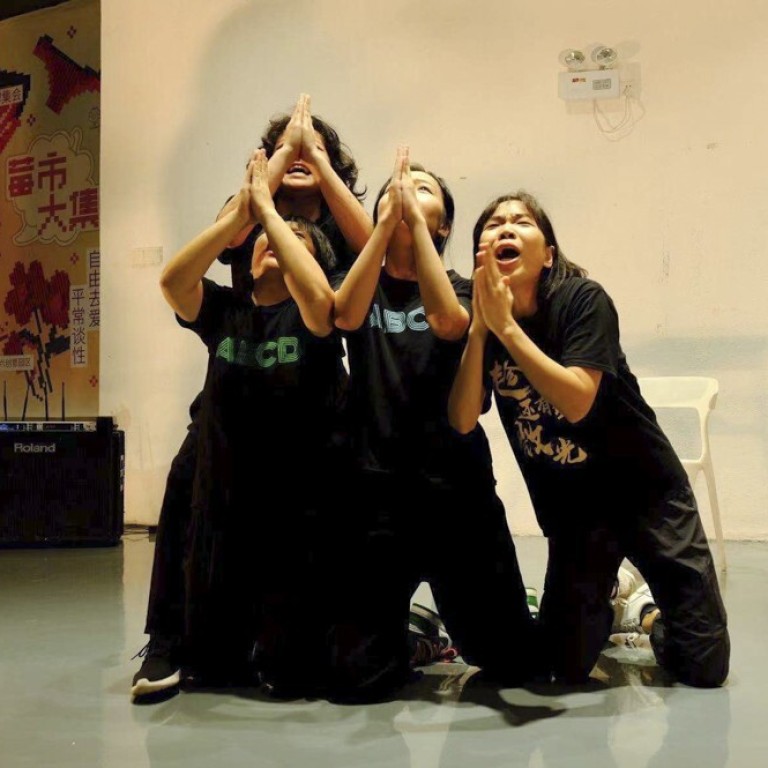
Playback improv is helping Chinese people open up about trauma, discuss taboo topics and find positivity in their lives
- The performances showcase actors interpreting the stories told to them by the audience
- Many stories include personal trauma, and the performance is an act of healing
In a packed theatre in the southern Chinese megacity of Shenzhen last month, a troupe of improvisation actors stood in front of an audience, pointed to a member of the crowd and asked her to share a story from her life.
The woman, who appeared to be in her 20s, said that, years ago, on a wintry day, she was walking home in a dark alley when a man approached her. As they passed each other, the assailant reached out and grabbed her breast.
Time has passed, but the woman still cannot forget that brief moment of fear and humiliation. As she finished her story, the event host looked at the actors and said, “Please improvise this story.”
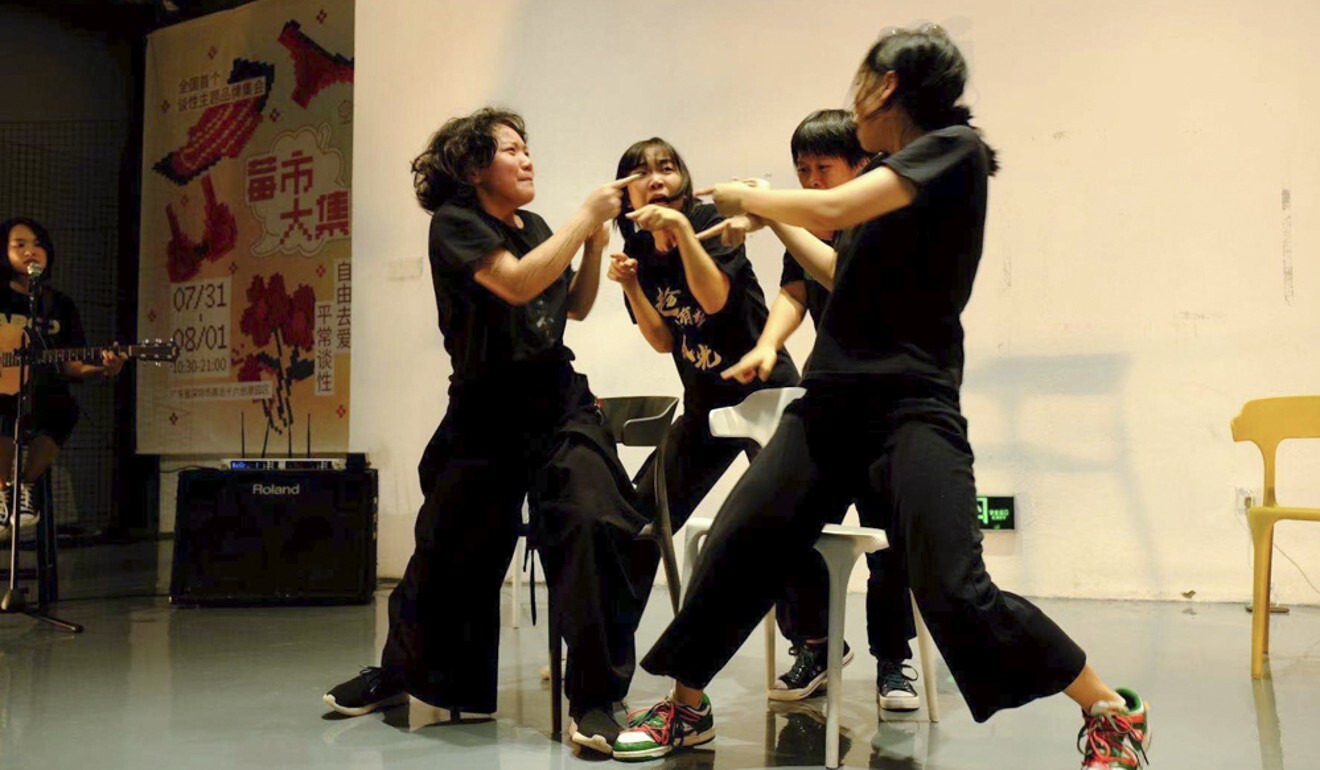
After the host’s prompting, an actress stepped forward and shouted, “Just because I have boobs, does that mean you get to grab them?”
Her colleagues followed the lead, reciting a poem, playing music or dramatising the emotions relayed by the woman.
The audience gasped, applauded and some attendees wiped away tears.
“It was winter, and I was wearing a thick feathered coat,” the woman said after the short skit was over, choking up. “I still do not understand. Why me?”
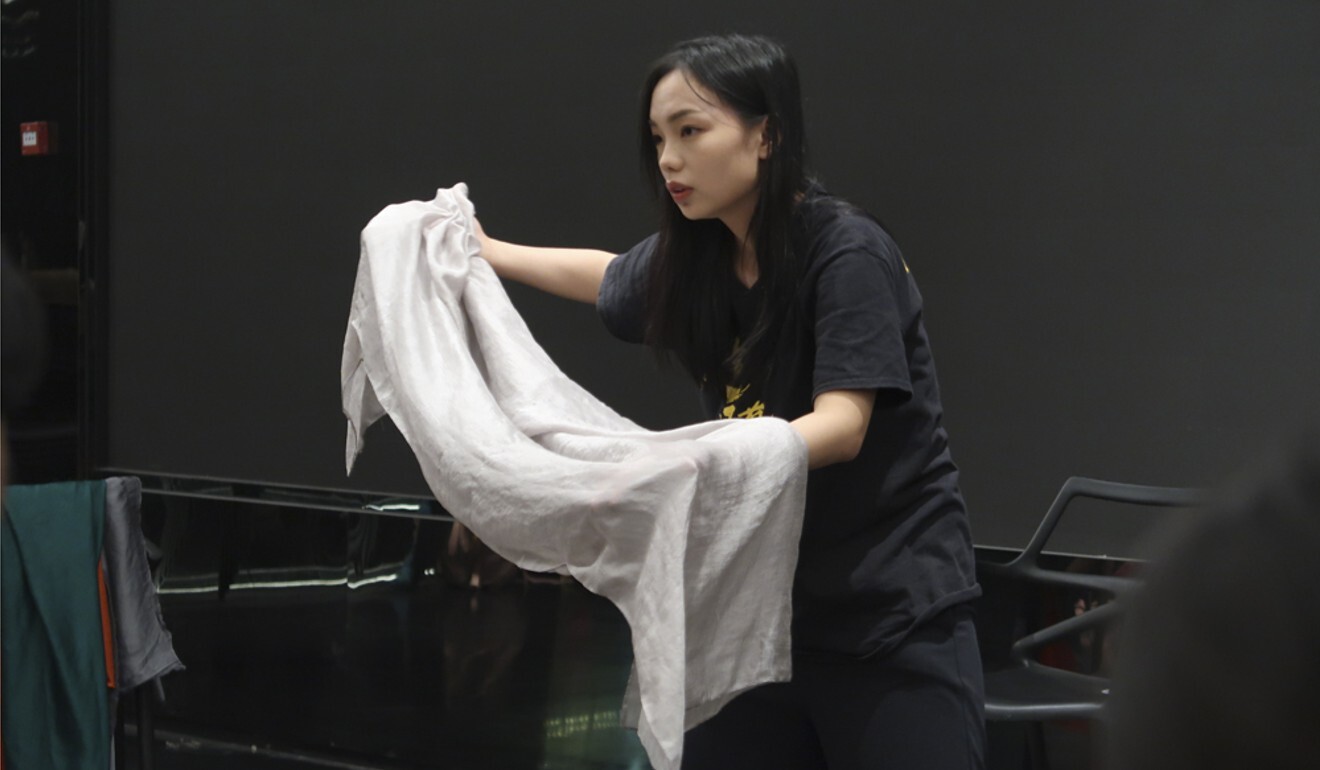
Young people in China use playback theatre to discuss personal and social issues often regarded as taboo by the mainstream. It also has become an avenue to bring attention to marginalised parts of society, such as the LGBT community.
Xixi, one of the founders and actresses at Guangzhou-based Renxi Education, was inspired by playback’s ability to create positive change.
In her previous life, Xixi studied preschool education and in 2017 started working at a kindergarten in Guangzhou, the southern city two hours inland of Shenzhen. Xixi wanted to become a teacher to influence young children and change the world for the better.
But, being one of many workers at the bottom of an elaborate education system, she became frustrated that she could not launch any of the changes she wanted.
That is when she discovered theatre workshops. Xixi attended a few sessions organised by Banky Yeung Ping-kei, the artistic director of Hong Kong FM Theatre Power, who has helped bring the art form to the mainland.
“It was a mind-blowing experience,” Xixi said. “It was the first time I found a place where members of the public could become the centre of attention and feel respected.”

She and other attendees of the workshop formed the Youwan Youzhi Theatre Troupe and started performing part-time. Youwan Youzhi dissolved in 2019, but a couple of the groups’ members went on to form Renxi Education.
Xixi has helped organise more than 200 performances and dozens of workshops.
Playback improv occasionally runs into censorship problems, most notably when, in 2018, as Youwan Youzhi, a group of people burst into the theatre, turned off the lights and demanded that everybody leave the premises.
But the biggest obstacle is trying to convince others that playback theatre is meaningful.
Zhang Yu, the troupe’s musician, said, “Whether we are cooperating with others or trying to promote the theatre, many people do not understand what playback is. But if the audience does not know what it is coming in, they understand when they walk out.”
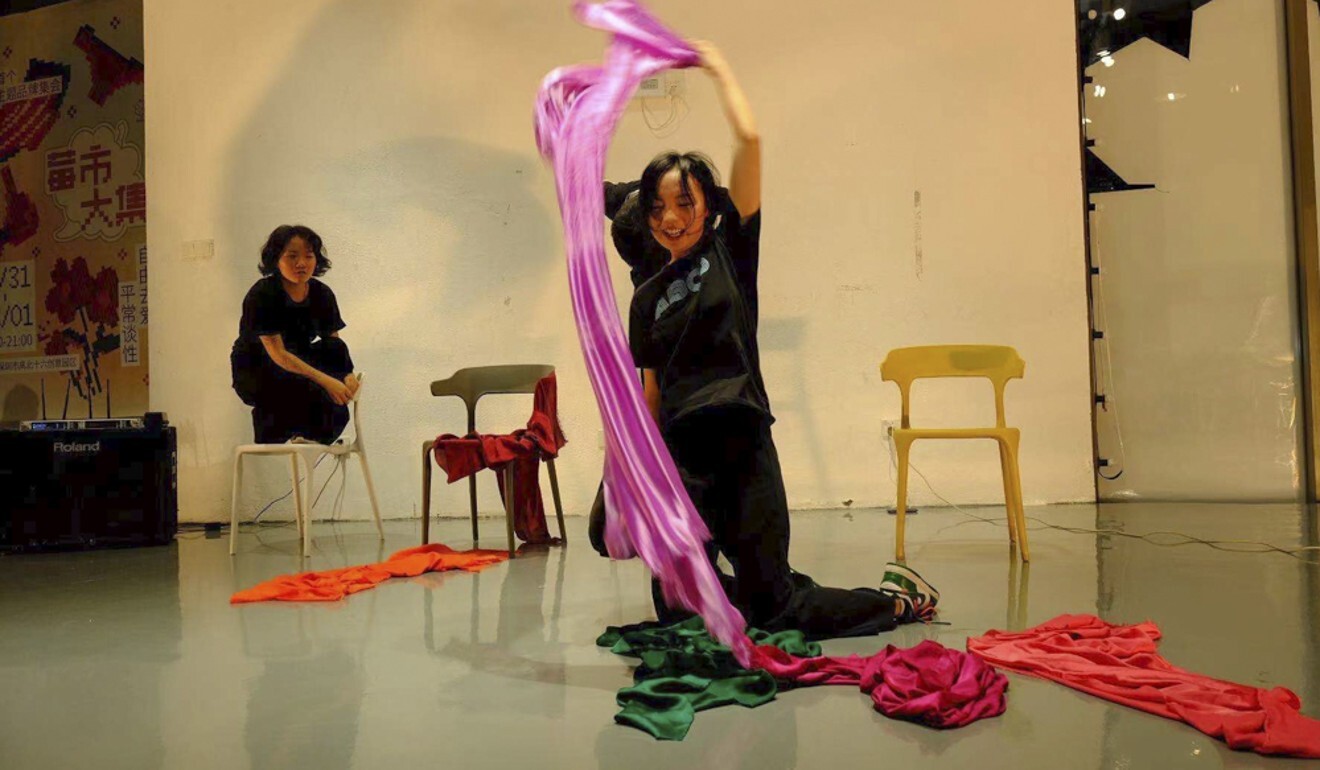
Every session begins with the performers telling a short personal story. Next, they invite an audience member to come on stage and share their personal experiences.
The performers then act out their understanding of the stories with prose, poems, dialogue, music and body language.
The audience members often share deeply intimate stories, and some include disturbing details. It is a supportive space, Xixi said, where everyone can be heard.
Yuqing, a 31-year-old woman in Shenzhen, took part in a performance in August where she told the audience she was raped by a relative when she was younger.
She told the Post that telling her story in public was an act of healing.
“As I tell my story more often, I gradually let it go. Talking is healing; crying is also healing.”

Xixi remembers one time when they were acting out a woman’s story of getting bullied and Xixi shouted on stage, “Who would help you?” Suddenly, an audience member said, “I will!” and went on stage to help. “You cannot bully her like that!” the person said.
Xixi said that is what makes theatre so powerful. “It sparks action.”
“The victim, in real life, had no such help, no one to stand up for her. It was as if they held a dialogue with the victim’s past right in our theatre.”
Last week, a mother who calls herself Hua talked about her daughter Mai, who is teased because she is short.
The mother told the Post she was not looking for a specific solution but took her daughter to the performance so that the young girl could learn and connect with others emotionally.
“What I want to express is that her parents love her and can lend her support. I want her to strike back with her own strength,” she said.
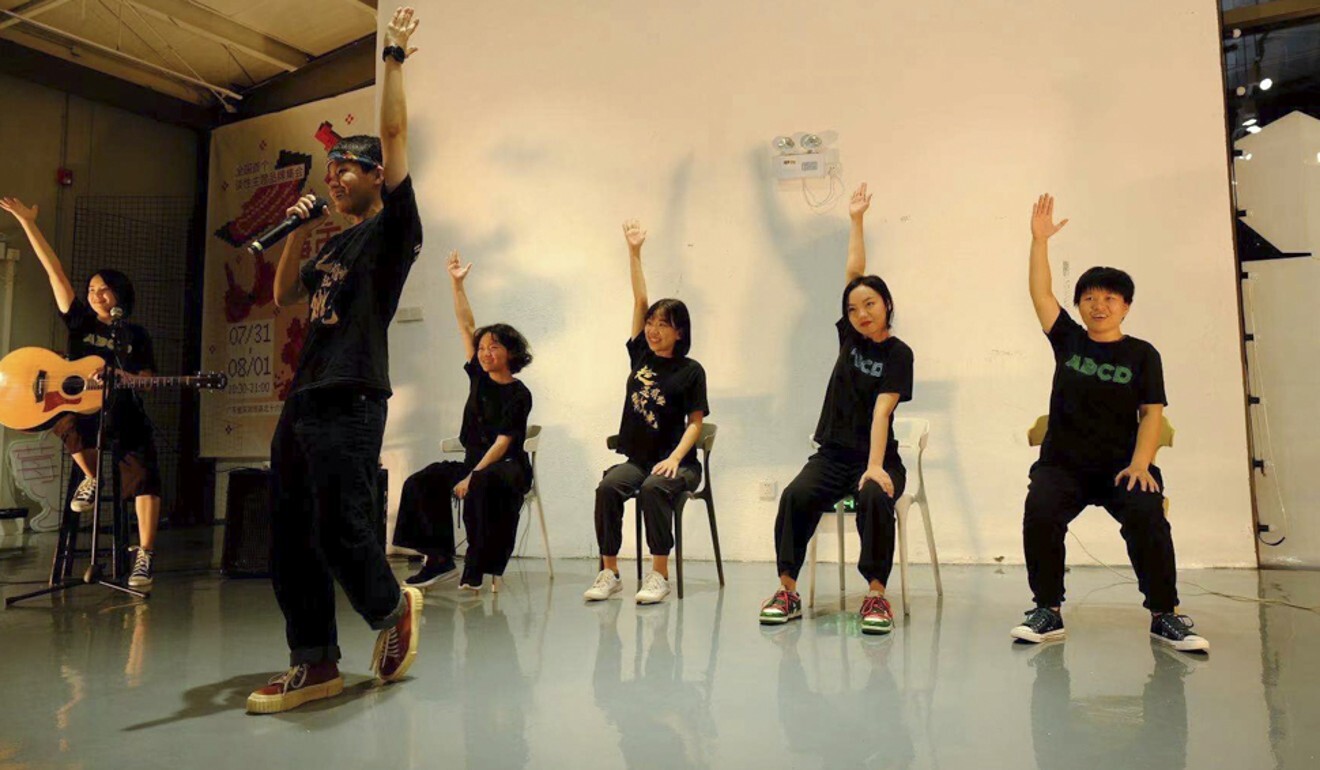
Playback improv has even changed the actors themselves. Xixi said she and her father used to have difficulty communicating.
But since she started doing theatre, she had invited her family to workshops, and they even performed with her on stage. Her father and uncle even opened up about the death of her grandmother, a traumatic event buried deep for years.
Gradually, her relationship with her father began to smooth. A few days ago, in a casual conversation, her father told her, “I’m very proud of you, my baby girl.”

.jpg?itok=H5_PTCSf&v=1700020945)